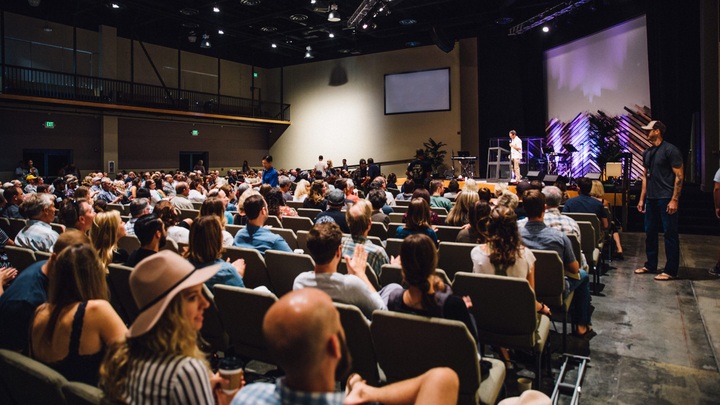Current Volunteers
At Reality Kids we love Jesus, love kids, and are excited to partner with parents! Here, Jesus is the Hero of every story, and we strive to cultivate a Gospel-centered ecosystem where kids can encounter, explore, and enjoy life with Jesus.
Upcoming Lessons
Leader Bible Study | Nehemiah Rebuilt the Walls (Nehemiah 1-7)
Recall the last time you were faced with devastating news or found yourself filled with angst, worry, or fear. How did you respond?
Anger and bitterness are common reactions to bad news. We may feel tempted to isolate ourselves from others. Grief is complex, and responses vary greatly. However, according to the Bible, Nehemiah’s response is the best response.
We read about Nehemiah’s general response in Nehemiah 1:4. Then in Nehemiah 1:5-11, we discover the specific way that Nehemiah prayed in response to this devastating news. He recognized God’s faithfulness, requested God’s ear, confessed sin, and committed his people to the Lord’s care.
Nehemiah began his prayer with a recognition of the faithfulness of God. He indicated his confidence that God had been and would continue to be faithful. He then requested God’s ear. Though Nehemiah was confident that God heard him, he opened and closed his prayer of dependence by begging God to listen to his request.
Why did Nehemiah pray this way? Likely, he was further demonstrating his deep conviction that God and God alone is able to work in such a way that would bring about restoration.
Nehemiah’s prayer also demonstrates his belief that sin has serious consequences. He confessed his own sin and the sin of his family, recognizing that God was fully aware of their sin, but also that this sin was not to be taken lightly and needed to be dealt with.
Finally, he committed his family—the Jewish people—into the hands of this faithful and just God. He trusted God to be faithful to His word and His people. Though Nehemiah didn’t know what the outcome would be, he was confident in his God, that He would remain faithful no matter what.
Nehemiah’s response demonstrated a deep love, trust, and confidence in God that is exemplary for each of us. When we face moments of devastation, we can—with deep dependence—turn to God and find comfort.
Return from Exile
Phase 1 (538 BC): Temple rebuilt (Ezra 1–6)
Phase 2 (458 BC): Leaders and judges returned (Ezra 7–10)
Phase 3 (444 BC): Jerusalem rebuilt (Nehemiah 1–13)
Preschool
Lesson Plans
Resources
Elementary
Lesson Plans
Resources
Leader Bible Study | Ezra Read the Law (Ezra 7-10; Nehemiah 8)
Find 1 John 1:9 in your Bible and read it slowly two or three times. Many Christians are familiar with these words; perhaps you have them memorized. We agree that God wants us to confess our sins to Him. We believe that God is faithful to forgive His children by the blood of Jesus. But do you find it easy to confess your sin to God? If not, why? Do you believe the lie that keeping quiet about our sin will prevent God from knowing about it?
In Ezra 9, leaders approached Ezra and declared to him the grim reality of the people of Judah who were caught up in devious behavior and lifestyles. Following the second return of exiles to Jerusalem, the men of Judah began to intermarry with foreign women again. It was as if they had completely forgotten God. Ezra’s response of honest confession before a holy God ought to teach us something about his character and about our need to do likewise.
First, Ezra stood before God and the faithful of Judah, and he cried out before the Lord. Ezra didn’t point fingers as he went before God. He didn’t shift the blame or use the chance to gossip about others in his community. Ezra did precisely what we see later recorded in 1 John 1:9: he confessed his sin to God.
Ezra truly believed that it was right to bring his sin and the sin of his community before God, to lay it all out before the Lord and to seek God’s forgiveness by faith and repentance. And not only did Ezra see the good of confession, he found reason to celebrate as he did.
Read Ezra 9:13. Ezra recognized the necessity of confession and then celebrated that God’s grace was still enough, still active, and still effective toward His people.
Ezra took his sin seriously and confessed it before a holy God. And Ezra confessed with hope that the God he had sinned against had been gracious and would continue to be so.
When we bring our sin before God, let us do so with humility rooted in our deep need for God and confidence grounded in our understanding of His amazing grace.
TERMS TO KNOW
Confession: admission, declaration, or acknowledgment; a significant element in the worship of God. Most occurrences involve one of two primary responses to God: confession of sin or confession of faith.
As we read the Bible, it is crucial that we recall the voice behind the words: the voice of God. Only God has the highest authority, holds all knowledge, and is perfectly good. Maybe you need to remember as you read and listen to God’s Word that this is the Lord’s declaration.
Preschool
Lesson Plans
Resources
Elementary
Lesson Plans
Resources
Leader Bible Study | The People Promised to Be Faithful (Nehemiah 9-10)
What comes to mind when you think about confession? Do you think of sadness? Weeping and guilt? Shame and failure? What about worship?
When was the last time you came before God in true confession? What led to your admission of failure before a holy God?
The Bible is clear that “God’s kindness is intended to lead you to repentance” (Rom. 2:4). But what does the Bible say about what confession should look like? What does the Bible say should lead us to confession?
Nehemiah 9 gives insight in how to answer that question. God’s people had gathered and were fasting and beginning to confess their sin when the priests chimed in with an appropriate pattern for how that confession ought to progress.
In this text, we discover that true confession of sin will never come before genuine recognition of the holiness of God. God’s people had promised to be faithful, but following their return from exile, the men of Judah intermarried with foreign women. They were unfaithful to God, disobeying His commands. Yet God remained faithful.
The pattern of the priests is to first recognize, exclaim, and celebrate God’s goodness, faithfulness, holiness, and righteousness. Only out of these truths comes the reason for confession. For it is only when we see the majesty of the holy God that we see the weight of our sin and the punishment due to us as a result. Then, and only then, will we be drawn to the altar of honest confession before God. Yes, conviction must come, but it will only come when there is first an awareness of the greatness of God.
Set aside time to intentionally approach God to confess the sin in your life. God wants your eyes fixed firmly on Him, even in moments of reflection and confession. For the moment we lose sight of Him is the moment we negate the gravity of our sin and the necessity of confession.
Faithfulness: being true to one’s word or commitments as to what one has pledged to do, professes to believe, and so on.
Preschool
Lesson Plans
Resources
Elementary
Lesson Plans
Resources
Team Training
Thank you for serving with Reality Kids! Before serving on our team, we require that all volunteers be trained. Please listen to the trainings below so that you know what is expected of you as a Reality Kids volunteer. The first three trainings are required for all Reality Kids volunteers. Once you've listened to those, please select the age group you will be serving with for age specific training sessions.




